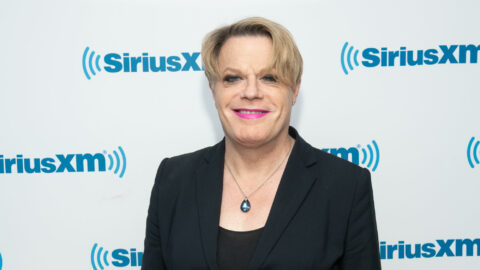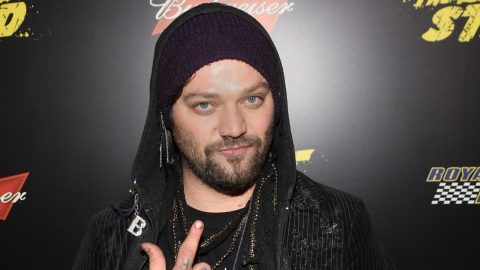NME Music News, Reviews, Videos, Galleries, Tickets and Blogs | NME.COM

“Is there any casualties out there, then? Yeah, we’re all casualties”, Liam Gallagher drawls, looking out from the NME Stage at Glastonbury in 1994, straddling a line between frustrated young man and apathetic kid. Oasis’ Pilton debut was everything the festival is about, bringing people together with defining moment.
With the chance to scrape last year’s mud off the wellies and head to Worthy Farm off the cards this weekend, now’s a better time than ever to reflect on the life-affirming magic and madness Glastonbury has thrown-up over its first 50 years. The BBC are leading the way in the celebrations, with a pop-up channel delving deep into the Glasto vault.
One of the biggest talking points in the packed schedule has been the rarely-seen debut Worthy Farm performance from a then-fresh-faced Oasis. While Glastonbury has been an unparalleled platform for emerging names to make their first impression on the world, there’s something especially mesmerising about this pre-fame appearance which showed a band on the brink of greatness.
Following the announcement of the airing, Noel took to social media to share some words on his experiences in Pilton over the years: “There are literally hundreds of festivals in the world, and I should know because I’ve played most if not all of them. The funny thing is, though, there’s really only one festival in the world – in the truest sense of the word anyway.”
Britpop was rapidly dawning at Worthy Farm in 1994 with Oasis, Blur, Pulp and Radiohead all kickstarting their long and illustrious romances with the festival – of course they all played the NME stage on the same day. Emily Eavis recalled in the recent celebratory book Glastonbury 50: “It was an amazing festival that year – dance music and Britpop were coming to the fore, and we had all these genre-defining acts playing for the first time.”
It was also her first festival as a teenager: “To me, those Britpop bands were superstars, people whose music I loved and felt part of. It was a very exciting time; suddenly there were ravers and indie kids who perhaps wouldn’t have been there before. It was more diverse and everything felt like it was shifting on its axis, morphing into something new.”
It proved an eventful year for the festival itself, with Channel 4 broadcasting the weekend live for the first time and the Pyramid Stage burning to the ground a few weeks prior to the gates being opened. Headliners that year included The Levellers, Elvis Costello and Peter Gabriel, but we also saw infamous sets from Johnny Cash, Björk and The Beastie Boys.

The young Gallagher brothers were suitably apathetic about the biggest moment of their careers so to date. Speaking to American journalist Liza Kumjian-Smith fresh off the stage afterwards, Noel carried an abrupt nonchalance: “I enjoyed it; I think it went down really well, there were about 15, 20,000 or something like that. It was good – biggest show I’ve ever done, so quite proud, really.”
Asked about the buzz behind the band at the time in the press, he added: “It’s probably due to the fact we’re really good and there’s nothing else to write about at the moment. I just think we’re probably the best band in England at the moment, anyway.”
Despite being a few months around the corner from overnight fame with the August release of ‘Definitely Maybe’, it was early days for Oasis. The band had only signed to Creation Records the year before. Having been playing shows up and down the country on the back of an early demo tape, they had already created a fizzing excitement for their early afternoon set with two colossal singles ‘Shakermaker’ and ‘Supersonic’, as well as a growing reputation for attitude and brawls. But as the oversized shirts, Adidas kicks and tinnies suggested, they could have as easily been part of the festival-going crowd as on their way to stardom.
Liam Gallagher told BBC Sounds recently that the lack of money in his pocket informed the iconic aesthetic: “I can’t remember much about [the set] but I remember what I was wearing, a blue Marks & Spencer jumper cause we hadn’t had any money. The album hadn’t come out – it all went a bit Gucci after that didn’t it?”
In a separate interview for the iPlayer series BBC Reel Stories last year, Noel also mentioned their look during these early days: “When I watch footage of those days and I see what I was wearing, I always think I’m wearing someone else’s clothes, someone who’s two stone heavier than me and four foot taller.”
Fashion aside, Liam was quick to dispel any pre-game nerves about heading out onto the NME stage, which has since become The Other Stage. “I didn’t feel nervous, do you know what I mean? It was like, ‘Glastonbury! Come on, bring it on. I didn’t walk on and go, ‘Woah, there’s loads of people’. It was like, ‘Come on let’s have it. It was easy, man. It didn’t freak me out at all. A lot of people today go, ‘Oh I can’t believe I’ve been announced for Glastonbury!’ Come on, man, just get up there, nail it and have it.”
The band were in that golden moment where everything was just coming together. Noel said he didn’t realise quite how significant those few months were at the time: “It’s only twenty years after the fact where you go, ‘That was an amazing period where you’re the same age as your audience and in the same circumstances because you’ve not become really famous or wealthy yet and maybe that period lasts for a year, six-months, that’s where you make your name.”
This was a band ready to bet on themselves – and why wouldn’t they? “We’d been rehearsing five nights a week for three and a half years; we were brilliant live,” he explained. “At that point, I knew we were going to be relatively big because I’d written ‘Live Forever’, ‘Cigarettes & Alcohol’ and ‘Supersonic’ was already out. I knew it.”

The brothers’ dogged self-belief was evident as they strolled out onto an overcast NME Stage on the often tricky early Sunday afternoon shift. Yet anyone nursing a sore head in their tents might have lived to regret missing an early start. This was driven home as Liam taunted with the signature snarl we know and love today, “Are you gonna wake up then yeah? Some real songs.” Arriving with a Stella in one hand and tambourine in the other, the band then launched into ‘Shakermaker’, and it wasn’t long before a sea of unwashed masses are bouncing in unison, aware history could be going down.
Next Liam announced ‘Fade Away’ before taking a glug and assuming his signature stance at the microphone. There’s a grit and rawness in the sound here and a lot of that comes from the sharp punky rhythm of original drummer Tony McCarroll. who acts as a bedrock throughout . After a heavy and hectic version of ‘Digsy’s Dinner’ and Noel teasing the crunchy guitar intro of ‘Cigarettes & Alcohol’, there came that all too legendary line: “Maaaaybe I don’t really wanna know, how your garden grows, cause’ I just wanna fly…”
If anyone in the crowd still hadn’t clocked they were witnessing something special, this was surely the moment, with people toppling over the barrier and Liam just absently staring out from behind his sunnies.
They were still a band figuring out their live dynamic. Noel didn’t even have a microphone of his own to offer up the backing vocals, but none of that mattered. After ‘Bring It On Down’, comes the double punch of would-be era-defining anthems in ‘Cigarettes & Alcohol’ and ‘Supersonic’. Watching it now, there’s a powerful juxtaposition between the standoffish attitude of the band, rooted to their spot, and the crowd primed for a scuffle.
Oasis rounded off on their rousing, swaggering rock ‘n’ roll with a cover of The Beatles’ ‘I Am The Walrus’ and Liam shouted, “Nice one see ya later”, not bother to absorb the moment for any longer than necessary. Yet he and the band would have ample opportunity to soak in those crowds again – and didn’t they just know it. They’d be back to headline only a year later with ‘Definitely Maybe’ already an iconic jewel in the Britpop crown.
– Oasis’ 1994 Glastonbury set will be available to watch as part of BBC’s Glastonbury Experience from 25-29 June
The post The full story of Oasis’ brink-of-greatness 1994 Glastonbury set appeared first on NME Music News, Reviews, Videos, Galleries, Tickets and Blogs | NME.COM.



